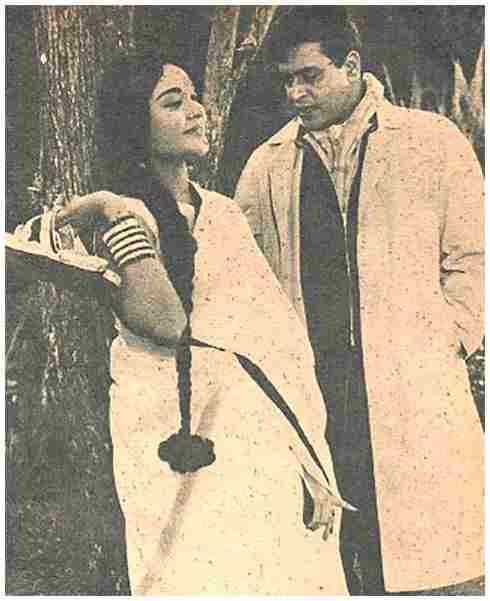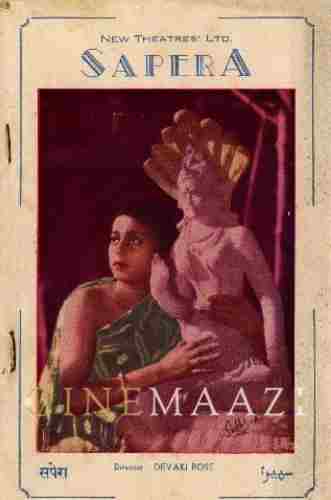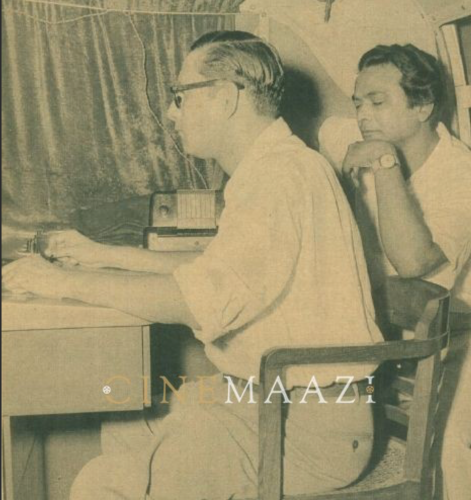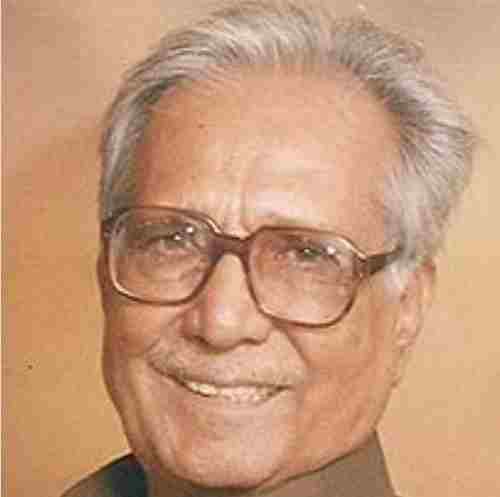Sangam (1964)

Subscribe to read full article
This section is for paid subscribers only. Our subscription is only $37/- for one full year.
You get unlimited access to all paid section and features on the website with this subscription.
Not ready for a full subscription?
You can access this article for $2, and have it saved to your account for one year.
Masterly Build-up of Trite Theme
Raj Kapoor's "Sangam".
Produced, directed and edited by Raj Kapoor.
Written by Inder Raj Anand.
Music: Shankar-Jaikishan.
Lyrics: Shailendra and Hasrat Jaipuri.
Cinematography: Radhu Karmakar.
Audiography: Allauddin.
Art Direction: M R Acharekar.
Cast: Raj Kapoor, Vyjayanthimala, Rajendra Kumar, Lalita Pawar, Achala.
Extraordinary length, spectacle, lush colour, eye-filling decor, handsome parade of top-notch stars and a story of the widest possible appeal with a good springkling of sex and romance go to make a block buster. A tremendous amount of advance publicity goes into it. It is generally pre-sold and released on what is known as "hard ticket" or "road-show" basis. The purpose of the block buster is to break through audience resistance.
Raj Kapoor's colour opus "Sangam" comes close to this category. Its lavish colour, beautiful photography, rich decor, excellent exteriors and appealing music have a sweeping impact, giving one the illusion of witnessing a Hollywood colour opus.
Impressive though it is in this way, it falls short of expectations. Its blurbs have compared it to "Gone With The Wind." Only where length is concerned does the comparison stand. But one wonders whether that length was necessary at all. For the four long hours it is stretched, what is spun out is a mere triangle drama, Shorn of the visual grandeur of the unfolding, the experience is disappointing.
Highly reminiscent of films like "Andaz" and "Chaudhvin Ka Chand," the story told is that of two friends, Gopal (a prosperous advocate) and Sunder (an Air Force officer), and their love for the same girl, Radha. The consequences are not unimaginable. But what is seen is hard to believe. These two pals, responsible men though they are, act irrationally in the belief that their friendship is more sacred than their love so that they may play with the life of the woman they adore. One feels that, in their hands, Radha is a pitiable victim of a "friendship-at-any-cost" fixation rather than an object of their professed, ardent love.
Strangely, Radha meekly submits to a marriage with a man whom she doesn't love and that too, at the instance of her own fiance! Gopal who loves Radha, and is loved by her, is man enough to live with his sorrow; it is Sunder and Radha who make it impossible for him to do so - the persuasive screenplay establishes this effectively. Not so Sunder's strange, dumb incomprehension of the fact that Radha and Gopal love each other; have done so since their very childhood - this is the screenplay's weakness.

When the end comes, it shapes up into a ranting squabble of three personalities, over a situation which their own folly has created. Their unsolvable problem is solved the easy way, Gopal plugging a bullet in his own heart! Did he have to wait 15 reels to do this?
This archaic treatment apart, Raj Kapoor's direction makes the going generally slick. Among the compensatory factors of the movie are its pleasant music and the European locale sequences. The latter are the best directed portions. But they are at the same time the least needed for the plot. A surprise element is a kissing scene. But that is no oversight on the part of the Censors as the people concerned are a foreign couple on foreign soil. But quite amusing for the audience and awkward for the Censors.
Raj Kapoor plays the role of the extrovert Sunder. Rajdendra Kumar is self-sacrificing pal and silent lover. Both vie for acting honours. But while Raj Kapoor gets the girl, Rajendra Kumar gets all the sympathy and the advantage of impressing the audience more than Raj. His is indeed a strong, sincere performance, probably his best to date. As Radha, vivacious Vyjayanthimala is dramatically appealing. Though all the three do well, they tend to become spokesmen for highly fabricated attitudes rather than instruments of normal thought processes attributable to ordinary people. Their idealism thus fails to convince, and the yarn itself pales into an archaic melodrama. What could have been an unforgettable saga of friendship and love dwindles into depiction of a fixation hard to believe and not very pleasant to witness. Showmanship apart, what is offered does not live up to the great promise made.
This article was published in Filmfare magazine’s July 10, 1964 edition as a part of 'Filmfare Reviews'.
The image and captions appeared in the feature is from the original article.
About the Author






.jpg)


